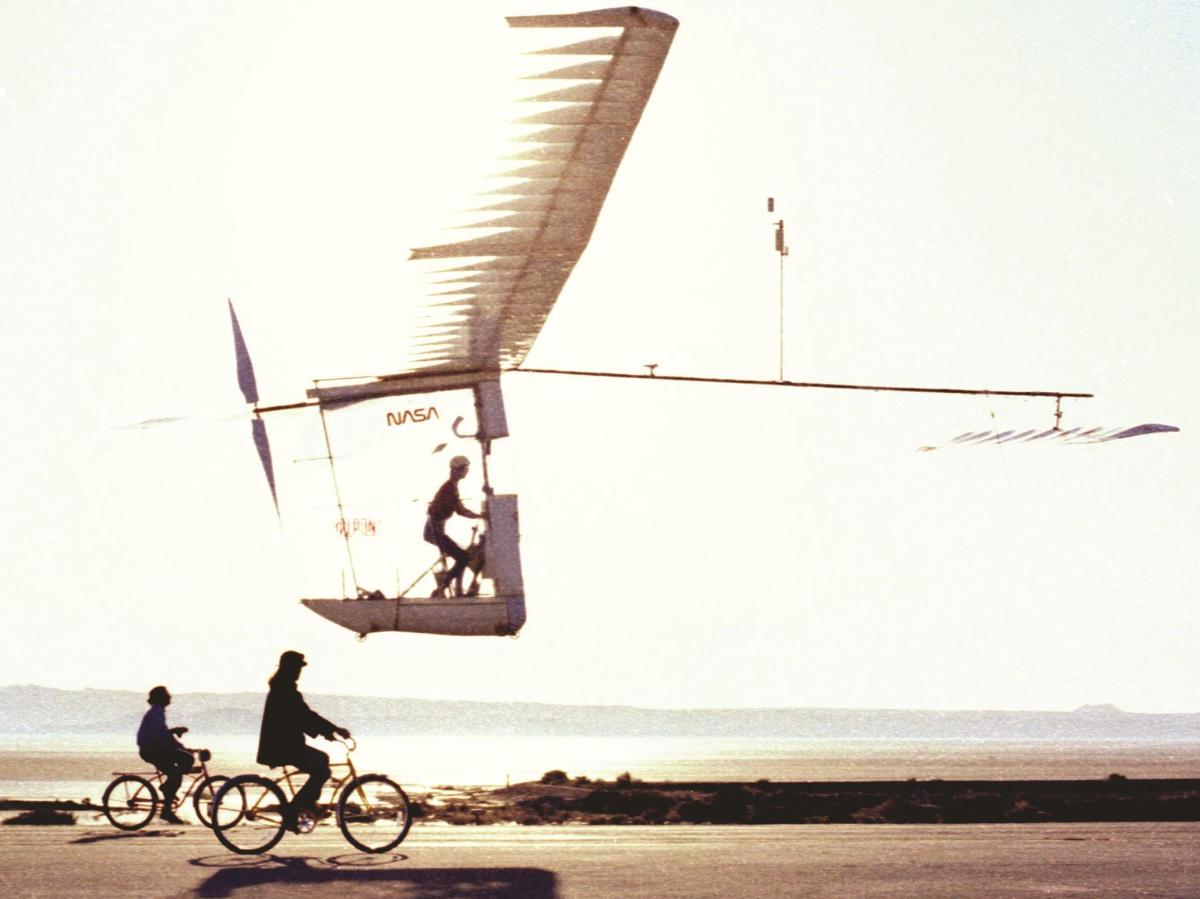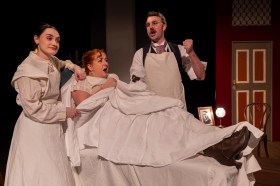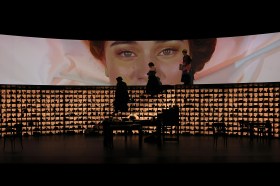Image supplied by New Music Network.
You need to start by reading this. Meanwhile, I’ll start the review with a description of the scene of the concert. It was in a church. Churches generally have good acoustics. This one did: there was enough space above us to accommodate both our anthropomorphic ideas of the holy spirit and the size of the sound we were about to experience. The roof was wood-panelled; a side door remained open, the plastic butchers’ flaps slapping gently in the wind while we waited for the show to start. The lights went down.
Have you read it yet? Do you understand pitch, and how it’s about the molecules in the air vibrating and different speeds, caused by a vibrating object like vocal chords, or the sound board on a violin or guitar? Because that’s what we’re talking about here. Rohan Drape, Alexander Garsden and Anthony Pateras’ To Where Nothing Ever Shared wasn’t about entertainment so much as it was about science. So that explains why my plus one and I weren’t entertained. We left irritated and stressed, and I yelled at him for trying to describe the concert as ‘a whole that was less than the sum of its parts’. ‘Just say what you mean!’ I yelled. I realise now that I was reacting to the music.
Each musician presented one or two individual pieces, all showcasing the reverberation of sound, as much as the notes they hit. Drape’s was written for computer, and input from a keyboard. It sounded like mice scuttling over a sound desk while the microphone was tested, with notes hanging in the air like the soundtrack to a relaxation massage. (I had heard this type of music in the form of film score; in this piece, the protagonist is contemplating their latest low point in a dystopian city nightscape.)
Next, Veltheim’s violin squeaked like Rachmaninov playing Flight of the Bumblebees on a hard bar of soap. His finger work was spectacular, and by the end the broken hairs on his bow swayed back and forth like a fly fisherman’s rod. (In this film, a heroine ran from a deranged serial killer.)
Joe Talia began his percussion piece low key, and then began what sounded like rearranging the saucepan drawer in a share house. Headphones on, Garsden waited for the resonance of his guitar to peak and dive as much as he payed attention to the notes he played. Pateras took up all the roof space with the sound of his piano until the wood panelling almost burst – then he took it up a notch. (His was a chase down a concrete stairwell in a thriller.)
Ever Shared was about sound, and an absence of traditional melody. But even as I felt bored or irritated, I started to think about the music. I noticed things. Like the sound of the actual piano keys, as opposed to the notes, being hit by Pateras’ impossibly fast fingers, which grew in and of itself into a loud resonance. Or how Veltheim plucked and bounced his bow off the strings those woody sounds were incorporated into the music. As the program attested, the pieces were ‘connected by a shared concern for working outwards from the acoustical realities of the ‘sounds themselves’. It was oddly relaxing.
I can’t tell you precisely what the object was, because I don’t understand it. These are incredibly talented and seasoned musicians, training and playing at the highest levels (for example, Veltheim has performed with the Berlin Philharmonic Orchestra, the Australian Chamber Orchestra, Melbourne Symphony Orchestra, Ensemble Modern (Frankfurt), musikFabrik (Cologne) and Australian indigenous singer-songwriters’ collective Black Arm Band). This is an exercise that went beyond music. It may have gone too far beyond to entertain, but it was a performance worthy of note.
Rating: 3 out of 5 stars
To Where Nothing Ever Shared
With Rohan Drape, Erkki Veltheim, Joe Talia, Alexander Garsden and Anthony Pateras.
Church of all Nations, Palmerston St, Carlton
www.newmusicnetwork.com.au
28 April





